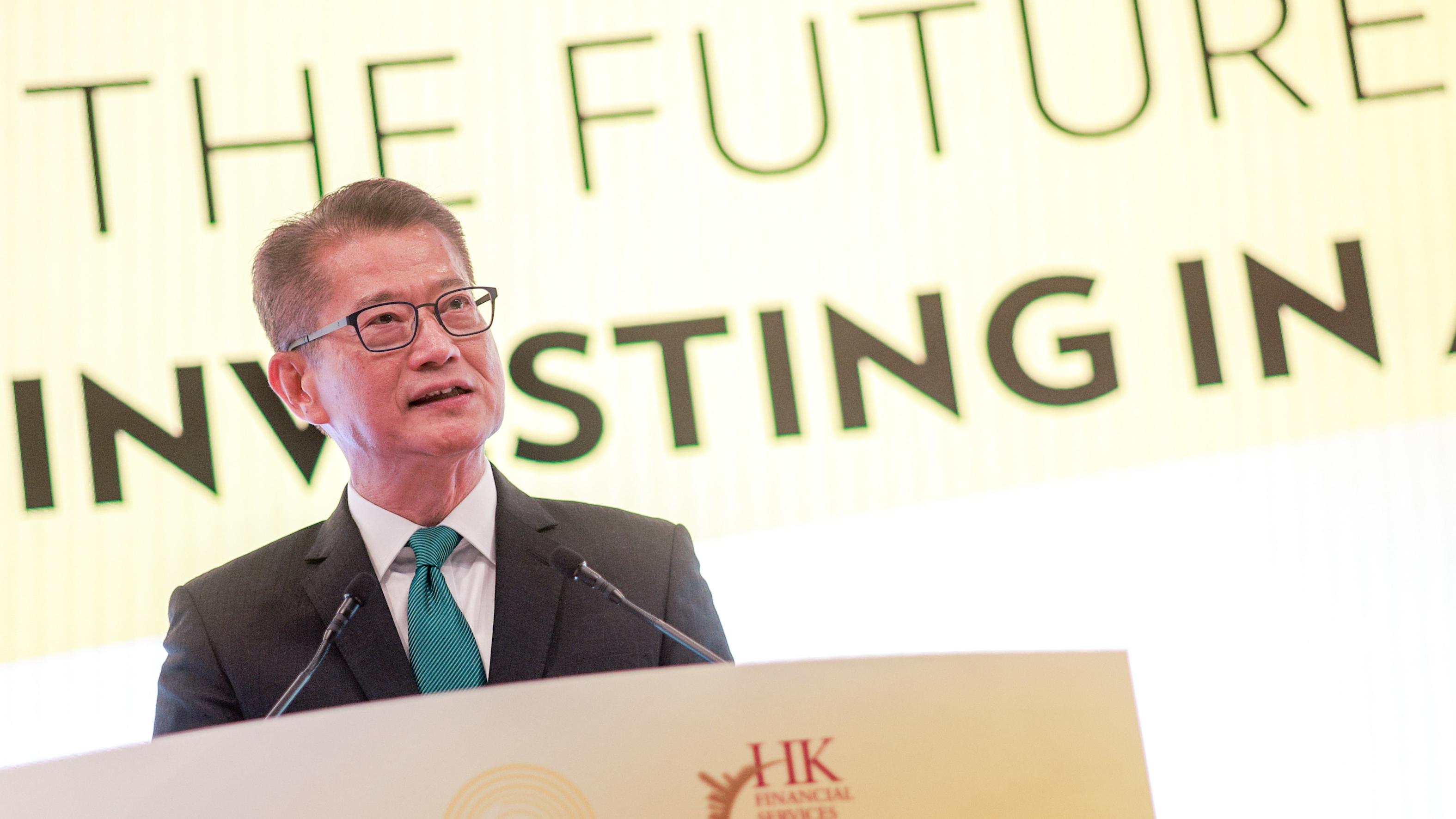 Financial Secretary Paul Chan Mo-po delivers a welcoming speech during the FSDC x GIIN "Navigating the Future of Impact Investing in Asia" conference at the HKEC connect hall in Central on May 9, 2023. (ANDY CHONG / CHINA DAILY)
Financial Secretary Paul Chan Mo-po delivers a welcoming speech during the FSDC x GIIN "Navigating the Future of Impact Investing in Asia" conference at the HKEC connect hall in Central on May 9, 2023. (ANDY CHONG / CHINA DAILY)
The Hong Kong Special Administrative Region should remain vigilant against external economic risks and variables to ensure the high-quality and sustainable development of the city’s economy, Financial Secretary Paul Chan Mo-po said.
“The International Monetary Fund has projected that global economic growth will slow further to 2.8 percent this year. Weak external demand, coupled with ongoing political disruptions to international supply chains, will continue to weigh on Hong Kong’s export performance,” Chan said in his Sunday blog.
Lingering geopolitical conflicts can be detrimental to the world economy’s steady recovery, so the SAR has to stay vigilant against uncertain factors and challenges in the external environment in the second half of the year, he said.
Lingering geopolitical conflicts can be detrimental to the world economy’s steady recovery, so the SAR has to stay vigilant against uncertain factors and challenges in the external environment in the second half of the year, said Financial Secretary Paul Chan Mo-po
The finance chief gave updates of Hong Kong’s recent economic data to show the progress of economic recovery even though it remains a bumpy ride.
Although the growth rate of domestic consumption had slowed down slightly in April, the value of retail sales had further increased to nearly HK$35 billion ($4.48 billion), easing the impact of continued weak exports on the local economy since last year. Chan said the disbursement of consumption vouchers has also injected about HK$33 billion into the market.
Current retail sale values and restaurant receipts have recovered to about 90 percent of the levels for the same periods in 2018 and 2019. Although the number of tourists to the SAR and Hong Kong International Airport’s capacity have recovered by more than 50 percent, compared with the pre-pandemic levels, Hong Kong expects its transport and reception capacities to continue growing, so the number of tourists is likely to pick up gradually.
ALSO READ: Chan: National security a prerequisite for HK development
Improvements in the employment situation and income levels of Hong Kong residents will also help to support local demand and stimulate economic growth.
 Pedestrians use a crossing in Central, Hong Kong, on Feb 28. (ANDY CHONG / CHINA DAILY)
Pedestrians use a crossing in Central, Hong Kong, on Feb 28. (ANDY CHONG / CHINA DAILY)
“Hong Kong’s latest unemployment rate (February to April) has dropped to 3 percent - the lowest level since the third quarter of 2019. The median monthly household income rose 2.1 percent in real terms in the first quarter of this year. When the people’s employment and incomes are stable, the foundation for economic development will be more solid,” said Chan.
Hong Kong’s latest unemployment rate (February to April) has dropped to 3 percent - the lowest level since the third quarter of 2019. The median monthly household income rose 2.1 percent in real terms in the first quarter of this year. When the people’s employment and incomes are stable, the foundation for economic development will be more solid.
Paul Chan Mo-po, Financial Secretary
In the asset market, the performance is more mixed, he said. “Transaction volumes and home prices rebounded in the residential-property market sector along with the recovery of the local economy.”
In the first four months of this year, the transaction volume of residential properties rebounded to an average monthly level of about 4,600 - an annual hike of more than 60 percent from a year ago when Hong Kong was hit by the fifth wave of COVID-19 infections. Compared to late December last year, the overall residential price and rental indices had risen by 5.8 percent and 1.5 percent, respectively, in the first four months of 2023.
However, the equity market has been weak in recent months. As of June 2, the Hang Seng Index had closed about 4 percent lower than the end of last year. The average daily trading volume in the first four months of this year was also 4 percent lower than that of last year.
READ MORE: Chan: HK's economic outlook more positive after reopening
“The banking crises in Europe and the United States, the continued rise of inflation and interest rates, the recent turmoil over the issue of the national debt ceiling in the US Congress, and the “de-risking” concerns have raised market concerns about the Chinese mainland’s and the global economy, and financial markets,” Chan said.


